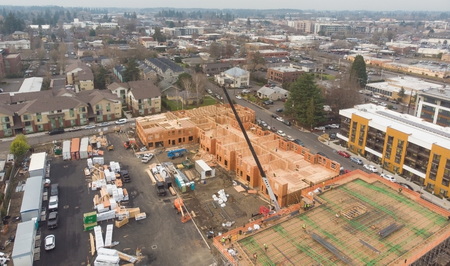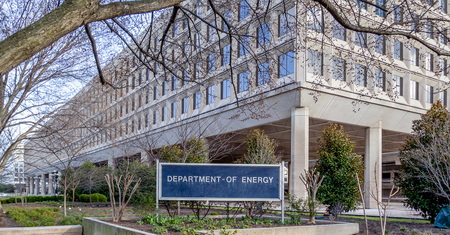 Proposed changes to the taxation of carried interest were cut from Senate Democrats’ broad Inflation Reduction Act (IRA) yesterday at the request of centrist Sen. Kyrsten Sinema (D-AZ). The Roundtable and 14 other national real estate organizations wrote to all members of Congress on Aug. 3 in strong opposition to the measure. (Coalition letter, Aug. 3 | Wall Street Journal, Aug. 4 |Tax Notes, Aug. 5). Photo above: Sen. Sinema at The Roundtable's 2022 Spring Meeting.
Proposed changes to the taxation of carried interest were cut from Senate Democrats’ broad Inflation Reduction Act (IRA) yesterday at the request of centrist Sen. Kyrsten Sinema (D-AZ). The Roundtable and 14 other national real estate organizations wrote to all members of Congress on Aug. 3 in strong opposition to the measure. (Coalition letter, Aug. 3 | Wall Street Journal, Aug. 4 |Tax Notes, Aug. 5). Photo above: Sen. Sinema at The Roundtable's 2022 Spring Meeting.
Vote on Revised Reconciliation Bill
Real Estate’s Carried Interest Opposition

Senate Considers Changes

The Roundtable continues to work with its policy advisory committees and national real estate organization partners to assess how details in the bill language could impact CRE. These policies will be a focus of discussion during The Roundtable’s Sept. 20-21 Fall Meeting in Washington, DC.
# # #

Sen. Joe Manchin (D-WV) and Democratic Senate leadership reached a side deal on federal energy permitting this week, separate from the larger reconciliation bill agreement addressing climate, taxes, and drug pricing reform. (PoliticoPro, One-page summary of agreement and Washington Post, Aug. 1)
Energy Permitting Provisions
Climate Financial Risk Tool

Initial access to the pilot will be limited to the Federal Reserve Board of Governors (FRB) and the Federal Reserve Bank of New York (FRBNY), with the goal of expanding access to all of the Financial Stability Oversight Council (FSOC) member agencies.
# # #

A coalition of 17 business organizations, including The Real Estate Roundtable, wrote this week to the North American Securities Administrators Association, Inc. (NASAA) requesting an extension of the comment period on proposed revisions to the NASAA Statement of Policy Regarding Real Estate Investment Trusts. In response to our coalition letter, NASAA has extended the comment period from August 11 to September 12, 2022. (NASAA extension request, Aug. 2)
The coalition is also preparing to submit a comment letter raising concerns about these proposed revisions to the NASAA Statement of Policy Regarding Real Estate Investment Trusts. (NASAA Request for Public Comment, July 12)
Proposed Changes
Wide Impact

Other Investment Concerns
The Real Estate Roundtable is working with several other organizations on the coalition’s responses to NASAA. Roundtable members can direct their comments and questions to Roundtable Senior Vice President Chip Rodgers or call 202-639-8400.
# # #